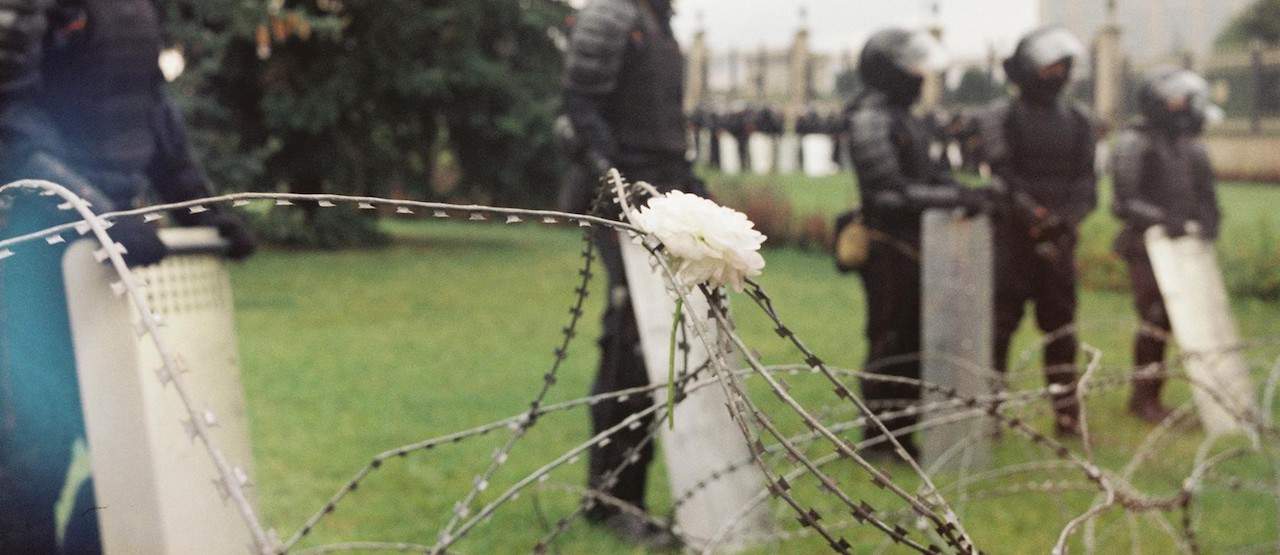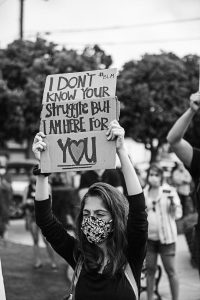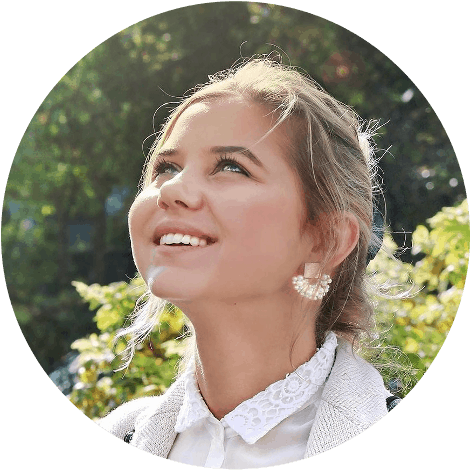
This is the second part of an article by Viktoryia Andrukovich “Does humanity need to fundamentally change its ways to tackle the major problems in today’s world?” that argues that global problems, such as climate change, military conflicts, poverty, global pandemics and much more, have a similar nature, which is largely social one and lies in the depths of human consciousness. It states that raising people’s awareness and taking responsibility for their own actions or inaction, can make a fundamental change in the current state of affairs in a world that has recently faced a stream of emerging challenges of different kinds. Click here to read the first part of the article.
Case of Belarus: COVID, Violence and Love
As a Belarusian who witnessed all the pain and violence, all the love and mutual help that woke up in Belarusian society last year, I cannot ignore the topic of Belarus, which vividly reflects both themes – responsibility and awareness, and blindly following orders and obedience.
In March 2020, when a pandemic broke out in the world, the Belarusian government refused to take measures to protect people, stating that it was “just psychosis” and suggested using vodka, saunas and tractors against the virus. Public policy and state media greatly insulted people who began to lose their loved ones, which seriously undermined the trust and respect for the government and the president, in person among that small percentage of their supporters who remained after 26 years of dictatorship and repressions.
COVID-19 was undeniably a big challenge for a devastated, hopeless Belarusian society that has lived in the regime’s totalitarian cage for decades, but it became the spark that kindled the fire and awakened the people to action, to take responsibility for their own lives, the lives of their loved ones and their own county.
Instead of the government, many people started to volunteer, joined NGOs and took action to protect people. For example, private enterprises began to sew masks and protective suits, volunteers delivered them along with food and other essentials to medical institutions. In short, the Covid-19 pandemic has spurred civil society and made people conscious of their strength as a nation, aware that together they can achieve their goals and they are stronger than the repressive state.
In many ways, Belarusians should be grateful to the Covid-19 pandemic for the level of unity and consolidation of society that we have at the moment, as well as for the massive resistance movement that arose after the falsification of the presidential election results in August 2020.
But every coin has two sides. As well as the Belarusian society.
In addition to an unprecedented level of unity, awareness and mutual assistance, in August last year, the Belarusian society faced an unprecedented level of violence and torture from the side of riot policemen and security officers.
This is a great example of a transfer of responsibility for all the cruelty, all the inhuman acts and tortured on the shoulders of the state, instead of recognizing the guilt as your own. Yes, the order is given by the government and it is undeniably responsible for it, but the decision, in the end, is made by each serviceman individually. The Belarusian resistance has not yet been defeated precisely because there are still people who lack awareness and responsibility for their actions, who exchange the values of humaneness and compassion for money, status and power.
Fortunately, this did not extinguish the spirit of people and their struggle for freedom, democracy and a life without violence, repression and fear continues and their hearts are still filled with hope and love.
Need to Reduce Fragmentation and Increase Common Responsibility

To summarize the reasoning above and in order to change the world, we must proceed from society and ourselves in particular. People should not blame global problems on authorities, governments, people in power and activists only. It is our common responsibility. The change should start from acceptance of responsibility by each individual.
We should work to reduce fragmentation in our community, so that not only several individuals take care of current challenges, but all of us; so that every person becomes an activist in one or another sphere. New educational programs must be created and implemented, especially for children, in order to encourage younger generations and pave the way for a new tolerant, responsible and responsive world society. This society and its values will also be a basis for the development of new efficient mechanisms of governance and management structures that will work not only to solve existing problems, but also to prevent emerging ones at the global, regional or local levels. Cooperation between countries and nations should be strengthened not only in the economic and political dimensions, but also in the social one, that is often neglected.
However, fortunately, I’m already observing societal change, which, in my opinion, can make a difference in other vulnerable areas. I see this in people of my generation, I see this in growing children who, from early years, have the awareness and desire to make the world a better place, who care about world peace and environment. Thanks to the hard work of many institutions, organizations and people worldwide, social rebirth has already begun and, I hope, with the further efforts will continue and lead to a humane and tolerant, compassionate and empathetic, responsible and responsive community, that would not face war, hostility or violence.
An article by Viktoryia Andrukovich.
___
The views and opinions expressed in this article are those of the authors and do not necessarily reflect the views of the Global Solutions Initiative.
___
The authors are members of the extended circle community of the Young Global Changers program.
 Viktoryia, is a human rights defender and civic activist, graphic artist and designer. She holds M.A. in Political Science and Sociology of Vytautas Magnus University. She is specialized in human rights and social justice, gender equality and antidiscrimination. She works at the International Committee for the Investigation of Torture in Belarus and the human rights organization “Human Constanta”. She also is an entrepreneur and promotes social entrepreneurship and social responsibility in business.
Viktoryia, is a human rights defender and civic activist, graphic artist and designer. She holds M.A. in Political Science and Sociology of Vytautas Magnus University. She is specialized in human rights and social justice, gender equality and antidiscrimination. She works at the International Committee for the Investigation of Torture in Belarus and the human rights organization “Human Constanta”. She also is an entrepreneur and promotes social entrepreneurship and social responsibility in business.
